Unexpected Water Leaks Are Done For When You Try These 4 Plumbing Maintenance Tips
Leaks in your home or place of business might seem like relatively minor structural issues.
Compared to some of the “big ticket items” you worry about with a building, you may even be tempted to simply ignore water leaks since it’s just a "little-lost water."
But ignoring leaks can cost you money. Leaks mean the water you lose you pay for in your monthly bills.
More importantly, leaks are symptoms of a small problem that can threaten to grow much larger and more expensive, like water damage, mold or a broken pipe.
If you want to prevent these major problems from happening to you, our four tips can help to avert these issues before they become serious.
Don’t Clear Drains with Strong Chemicals
 There’s an obvious need to clear out a blocked drain or want to deal with a slow drain before it completely blocks.
There’s an obvious need to clear out a blocked drain or want to deal with a slow drain before it completely blocks.
However, the first solution shouldn’t necessarily be buying a powerful chemical agent from the store and pouring that down your drain.
Modern drainage plumbing is often made of synthetic materials like PVC, which are plastic, and those chemicals can erode, weaken, and even break these pipes if they are used too frequently.
Lessen Water Pressure
 A lot of homeowners will make the case that high water pressure is essential because you can’t have a decent shower without it.
A lot of homeowners will make the case that high water pressure is essential because you can’t have a decent shower without it.
However, modern showerheads can pressurize the water, meaning you don’t need to have the entire plumbing system of your home at a high water pressure!
And honestly, it’s bad for your house! High water pressure adds constant, damaging force to every pipe in your home. Moreover, it can also cause you to pay more on your water bills, and may even damage water-using appliances like laundry machines and dishwashers, causing them and/or pipes to leak.
 Prevent Corrosion
Prevent Corrosion
Corrosion is a natural process for most metals, which means the trick is to reduce the chance of this occurring as much as possible.
This is especially important in pipes, which are constantly exposed to fluids and can spring leaks should they deteriorate enough due to rust or other factors.
Depending on the type of pipes you want to protect, corrosion prevention can be as simple as applying paint sealer, for copper pipes.
On the other hand, if your home builders decided to use your metal pipes to also ground electricity, the electrical power may be causing galvanic corrosion! Take steps to eliminate this.
Verify Leaks
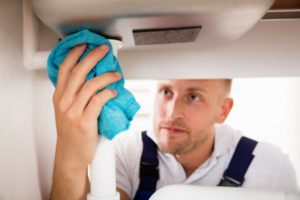 What if you suspect you may already have a leak? You should first confirm its presence and determine its severity.
What if you suspect you may already have a leak? You should first confirm its presence and determine its severity.
If a visual inspection of faucets, appliances, and pipes you can easily access yields nothing, look for moisture, water stains or even water damage in areas like walls and ceiling that pipes may be behind.
You can also take a reading of your water meter when water is not being used to see if it’s still measuring water consumption. If it is, you have a leak. Fortunately, living in Vernon, CT means you have easy access to professionals that can address leaks if you find any. Always make sure to either prevent leaks from occurring or fixing them quickly before they escalate to bigger problems.


 People who love gardens and green lawns need to satisfy a lot of very thirsty plants, and that will always take a big chunk of water.
People who love gardens and green lawns need to satisfy a lot of very thirsty plants, and that will always take a big chunk of water. The traditional car wash costs you a bit more money, but you save on time and elbow grease.
The traditional car wash costs you a bit more money, but you save on time and elbow grease.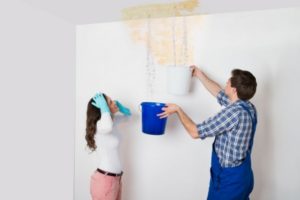 The worst type of expense on your bill is one you’re not even using. A leak in your plumbing may not ever make it to a tap, or your washing machine, but as far as your water meter is concerned, it is water that’s been used and you have to pay for it.
The worst type of expense on your bill is one you’re not even using. A leak in your plumbing may not ever make it to a tap, or your washing machine, but as far as your water meter is concerned, it is water that’s been used and you have to pay for it. If you take a bath regularly, that relaxing experience in the tub also requires about 20-50 gallons of water.
If you take a bath regularly, that relaxing experience in the tub also requires about 20-50 gallons of water.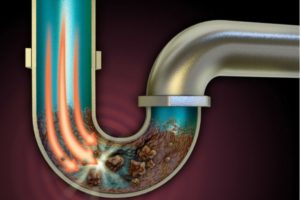 Imagine not having to unclog your sink every time you want to use it over the coming months.
Imagine not having to unclog your sink every time you want to use it over the coming months. When contaminants settle in the drain, it can cause loud noises throughout the home.
When contaminants settle in the drain, it can cause loud noises throughout the home.

 1 - Make sure you have a stockpile of de-icing salt on hand to make the clearing of your paths and driveway much easier.
1 - Make sure you have a stockpile of de-icing salt on hand to make the clearing of your paths and driveway much easier. 4 - Be sure to have extra batteries on hand for your smoke detector and carbon monoxide detector.
4 - Be sure to have extra batteries on hand for your smoke detector and carbon monoxide detector.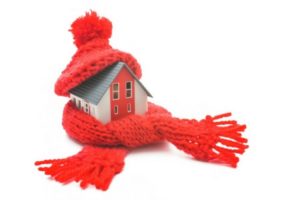 7 - Make sure you have at least two space heaters on hand, in case the furnace breaks. Space heaters can help keep the heat in your home in the event of a complete breakdown of your heating system.
7 - Make sure you have at least two space heaters on hand, in case the furnace breaks. Space heaters can help keep the heat in your home in the event of a complete breakdown of your heating system. Once a pipe is broken, or your backflow mechanisms have been damaged then it is quite easy for your home to become contaminated with many different types of pathogens.
Once a pipe is broken, or your backflow mechanisms have been damaged then it is quite easy for your home to become contaminated with many different types of pathogens. Many of the strategies that plumbers use to battle health issues due to unclean water in the home and the community are preemptive ones.
Many of the strategies that plumbers use to battle health issues due to unclean water in the home and the community are preemptive ones. The best way to help your plumber be a superhero is to follow his advice to install low-flow toilets, showerheads, and faucets in your home.
The best way to help your plumber be a superhero is to follow his advice to install low-flow toilets, showerheads, and faucets in your home.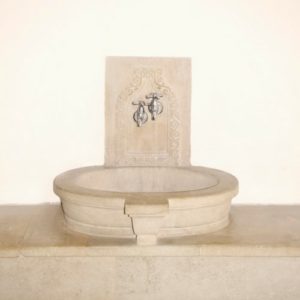 It was the ancient Egyptians who first introduced plumbing to mankind, thanks to a ruler named Menes who built a series of ditches and canals to help train water towards farms and city dwellings.
It was the ancient Egyptians who first introduced plumbing to mankind, thanks to a ruler named Menes who built a series of ditches and canals to help train water towards farms and city dwellings. Before the invention of running water and flush toilets, even kings and queens had to put up with less than sanitary conditions, which inspired Marie Antoinette to invent a special strong smelling perfume in order to cover up the smell of 17th-century day-to-day living.
Before the invention of running water and flush toilets, even kings and queens had to put up with less than sanitary conditions, which inspired Marie Antoinette to invent a special strong smelling perfume in order to cover up the smell of 17th-century day-to-day living. By 1910, the contemporary closed toilet bowl and tank that is used by citizens of South Windsor, CT today had been invented and the basic design has not really changed since then.
By 1910, the contemporary closed toilet bowl and tank that is used by citizens of South Windsor, CT today had been invented and the basic design has not really changed since then. Just because it’s summer doesn’t mean you need to do away with your
Just because it’s summer doesn’t mean you need to do away with your  Everyone knows that keeping the sprinkler on 24/7 to protect your lawn is wasteful. Instead, make the most of your sprinkler time by letting the kids run through the water and cool down at the same time!
Everyone knows that keeping the sprinkler on 24/7 to protect your lawn is wasteful. Instead, make the most of your sprinkler time by letting the kids run through the water and cool down at the same time! Water fights are a fun part of summer and nothing is more enticing than a bucket filled with gently jiggling, colorful water balloons. But water balloons only offer a one-time use, which can be wasteful.
Water fights are a fun part of summer and nothing is more enticing than a bucket filled with gently jiggling, colorful water balloons. But water balloons only offer a one-time use, which can be wasteful. If you find yourself in a pinch for a quick and inexpensive summer activity, try making a DIY slip and slide course out of materials found in your own home.
If you find yourself in a pinch for a quick and inexpensive summer activity, try making a DIY slip and slide course out of materials found in your own home. Games are always a hit when it comes to outdoor fun. Try this minute-to-win-it style game by placing a full bucket and empty bucket away from each other. Participants will have to fill the empty bucket using water from the full one.
Games are always a hit when it comes to outdoor fun. Try this minute-to-win-it style game by placing a full bucket and empty bucket away from each other. Participants will have to fill the empty bucket using water from the full one.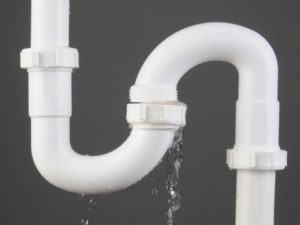
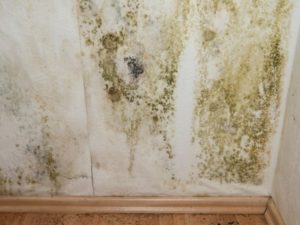 They have damaging effects that many homeowners would much rather avoid including:
They have damaging effects that many homeowners would much rather avoid including:
 Sometimes, your kitchen or bathroom renovation will involve having to knock down a wall, exposing your home’s pipe system.
Sometimes, your kitchen or bathroom renovation will involve having to knock down a wall, exposing your home’s pipe system.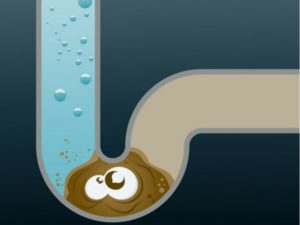
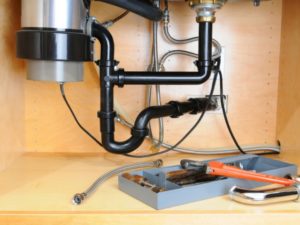 The sulfurous smells can also be caused by a vent pipe on your roof blocked with bird nest or other debris.
The sulfurous smells can also be caused by a vent pipe on your roof blocked with bird nest or other debris.